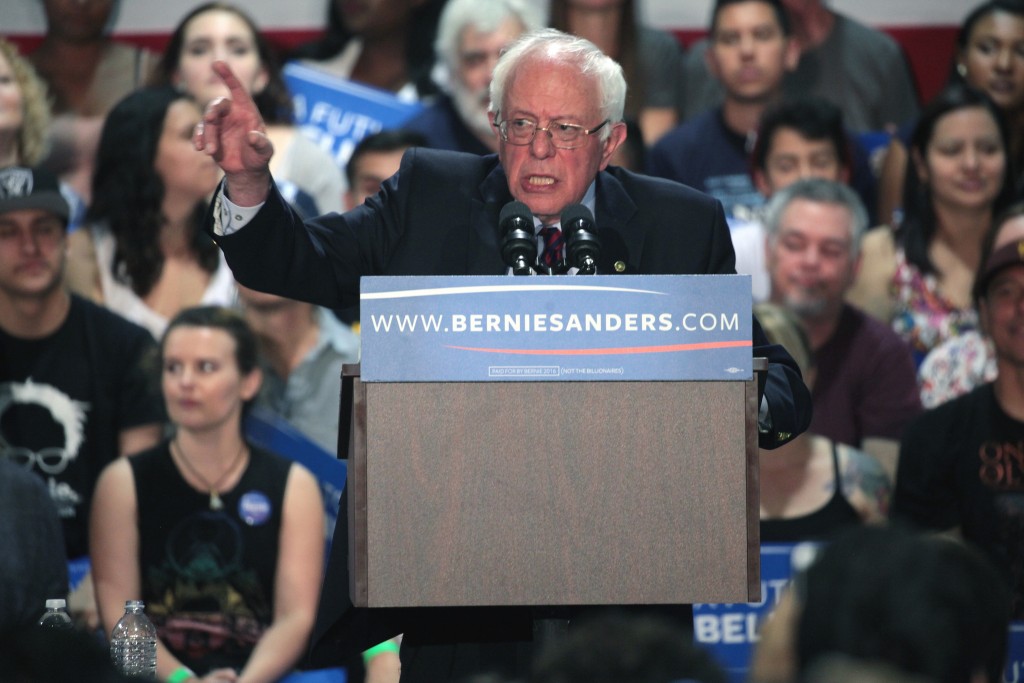During the 1930s, the New Deal coalition passed a slew of landmark bills, which established protections from social security benefits to collective bargaining rights to minimum wages and maximum hours. While countless American families benefitted from this progressive legislation during the worst economic crisis in American history, the benefits were largely restricted to whites because of the nature of the coalition—Southern Democrats refused to support any legislation unless it was amended to exclude African Americans. As a result, the series of social programs that is widely credited with helping America recover from the Great Depression ignored those who were hit hardest by the downturn. In essence, it further increased racial inequality.
Today, Bernie Sanders calls for a political revolution similar in its radicalism to that which brought about the New Deal. But the nature of a revolution is determined by those who comprise it, and Sanders’ revolution, like the political alliance that created the New Deal, is overwhelmingly white. Sanders himself inadvertently highlighted this diversity deficiency during Thursday’s Democratic presidential debate in Brooklyn in a remark about Hillary Clinton’s success in the South. “Look, let me acknowledge what is absolutely true: Secretary Clinton cleaned our clock in the Deep South, no question about it,” Sanders said. “That is the most conservative part of this great country. That’s the fact. But you know what, we’re out of the Deep South now. And we’re moving up.”
While the Deep South may well be the most conservative region of the United States, Sanders was referring specifically to the Democratic primary electorate in the Deep South. And to say that Southern Democratic primary voters are the most conservative in the country—or even in the Democratic party—is patently false. In most states, according to the polling firm Public Policy Polling, roughly 50 to 60 percent of Democratic primary voters identify as liberal. The state with the most conservative Democratic primary electorate is Oklahoma, in which only 44 percent of Democrats identified as liberal. As it happens, Sanders routed Clinton in this deep red state, beating her by over 10 percentage points.
Create your own infographics
What does characterize the Democratic primary electorate in the Deep South, if not conservatism, is blackness. The Democratic primary electorate was majority black throughout the Deep South, while in the rest of the country, black voters make up only as much as a fourth of the Democratic electorate. Given this fact, it appears that Sanders, when explaining for his dismal showing in the South, should have credited the region’s racial makeup, rather than its ideological makeup.
Create your own infographics
When Sanders equates the South with white conservatism, he ignores its strong tradition of black progressivism. This is a fundamental flaw in his campaign, and of white liberalism in general. The revolution that Sanders advocates seems to be by and for white people. It makes sense, then, that he writes off the Deep South as too conservative—the white portion of the Deep South is. But that’s not representative of the South as a whole.
This is not to say that Sanders’ economic agenda would only benefit white people—it would undoubtedly help all of those at the bottom of America’s socioeconomic ladder, which includes people of all races. This is also not to say that Clinton’s agenda would be any better in combating racial inequality, though it would be informed by a more diverse set of voices.
By not creating room for non-white perspectives in his revolution, Sanders is limiting the extent to which it can ameliorate not only economic but specifically racial inequality. While he has acknowledged the role the environmental degradation, mass incarceration, and voter suppression have played in disadvantaging communities of color, Sanders’ message remains an almost exclusively economic one. Even when asked directly about racial issues, Sanders pivots back to his core message of economic inequality. Perhaps if he listened to the black voters in the South instead of dismissing them, Sanders would understand that a single-payer healthcare system won’t address the disproportionate violence and lack of access to food and healthcare in many black communities, that breaking up the big banks won’t stop predatory financial practices that target those black communities, and that a new New Deal can’t and won’t singlehandedly dismantle systemic racism in America.
Image Credit: Gage Skidmore/Flickr
